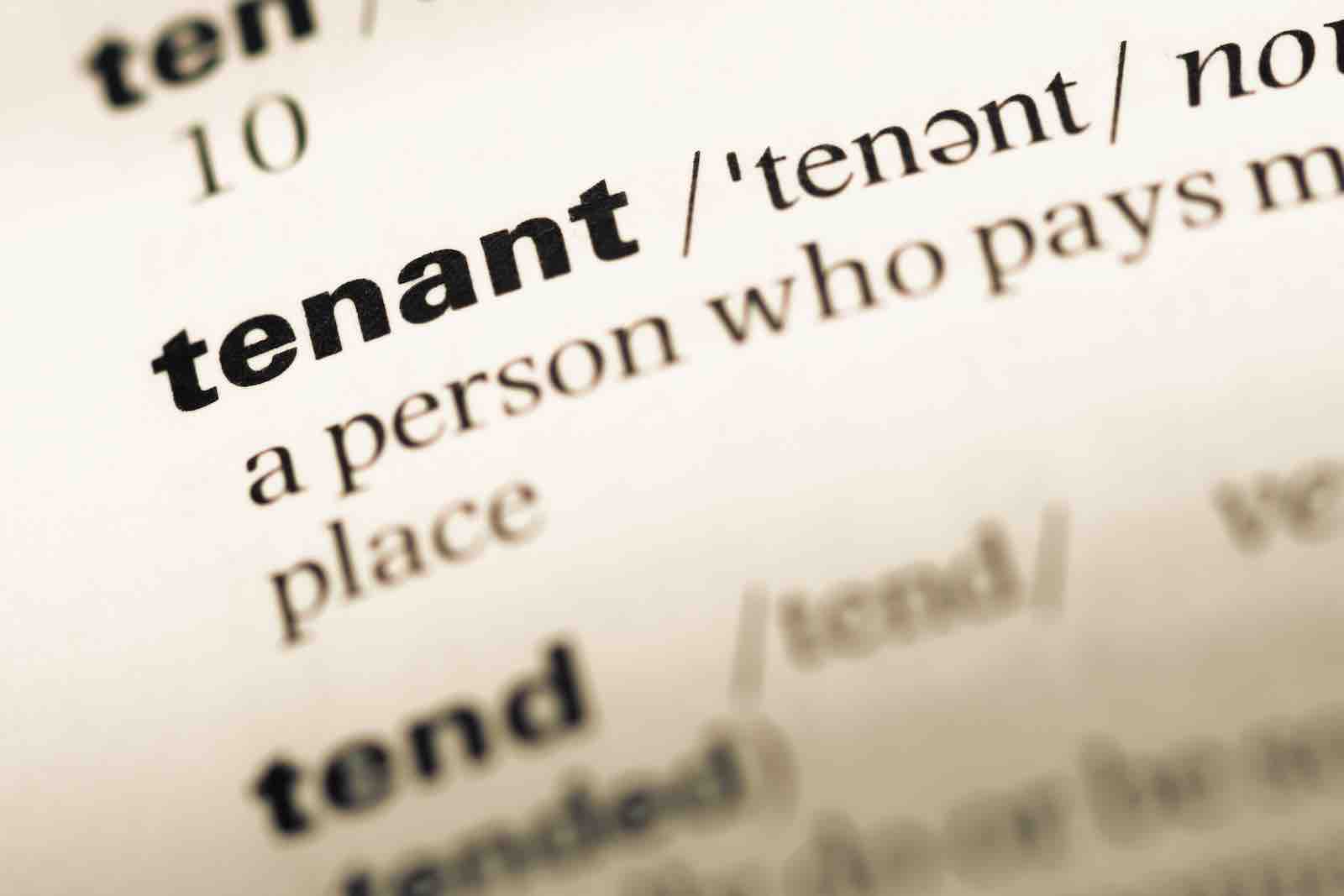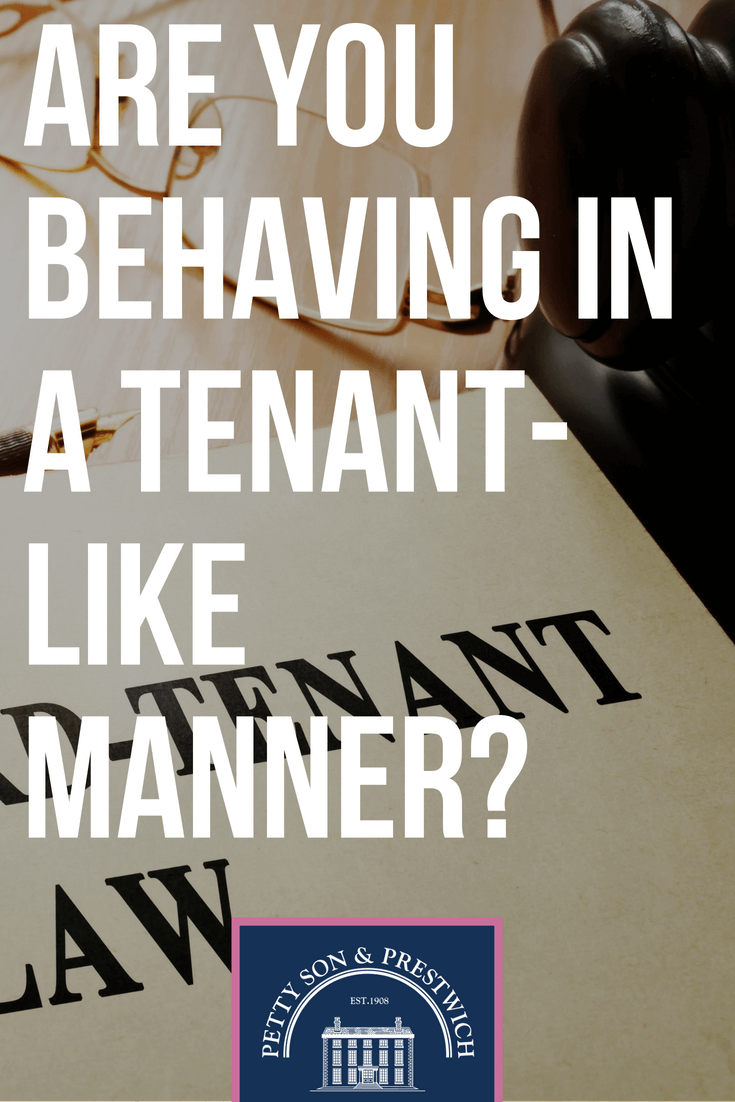Although it may seem somewhat self-explanatory at first glance, behaving in a tenant-like manner could really mean anything and would, therefore, be open to interpretation without solid guidelines behind it. Thankfully, such guidelines exist, and in this post we’ll explore exactly what behaving in a tenant-like manner actually means so you’ll know exactly what your responsibilities are.
What are the origins of the phrase, “tenant-like manner”?
Industry jargon can sometimes enter the lexicon over time simply by accident. In other instances, however, there are specific points in history that lead to phrases being adopted, and “tenant-like manner” is one such example.
The origins of tenant-like manner can be traced back to a case from 1953/4 which handled a dispute between a landlord and tenant, namely Warren v Keen. Overseen by the esteemed Lord Denning - regarded by many as the greatest English judge of modern times - the case was brought by a landlord seeking to put an obligation on the tenant for repairs despite there being no covenant for them to do so.
The landlord argued that the tenant had a duty to maintain the property, keeping it both wind and watertight, as well as having a duty to carry out general repairs. The landlord put it to the court that repairs were an implied term of the tenancy and that the tenant should behave in a tenant-like manner.
Lord Denning stated in his judgement:
‘The tenant must take proper care of the place. He must, if he is going away for the winter, turn off the water and empty the boiler. He must clean the chimneys, where necessary, and also the windows. He must mend the electric light when it fuses. He must unstop the sink when it is blocked by his waste. In short, he must do the little jobs about the place which a reasonable tenant would do.
In addition, he must, of course, not damage the house, wilfully or negligently; and he must see his family and guests do not damage it: and if they do, he must repair it.’ and ‘if the house falls into disrepair through fair wear and tear or lapse of time, or for any reason not caused by him, the tenant is not liable to repair it.’
Despite occurring over half a century ago, this particular case is often cited as the one which defined the responsibilities of both landlords and tenants when it comes to the upkeep of a property. But, how does that translate to today’s tenancy agreements?
What behaving in a tenant-like manner means today

As you can see by Lord Denning’s summation, the responsibility for many of the ‘little jobs’ that go a long way to maintaining the standard of a property fall at the feet of the tenant. The problem is defining what exactly these little jobs entail.
In most instances, the tenancy agreement the tenant signs before taking on a property will give a greater overview of what is expected of them. However, behaving in a tenant-like manner will normally include small jobs such as:
- Unblocking sinks, toilets, and drains
- Changing light bulbs and fuses
- Keeping both the interior and exterior clean, including windows
- Maintaining level boiler pressure by re-pressurising when necessary
- Bleeding radiators
- Changing batteries in smoke and carbon monoxide detectors
- General garden maintenance, such as mowing the lawn and sweeping up leaves
- Keeping windows free from condensation
- Ensuring that the property is kept free from pests
In short, the term ‘small jobs’ should reflect day-to-day maintenance tasks. If the job in question requires a professional to handle it, such as a leaking roof, for example, that will fall within the landlord’s remit, not the tenants.
A good rule of thumb is, If I owned the property, would I pay someone to complete the task at hand? If the answer is no, then it’s likely to be a job for you rather than your landlord.
Why behaving in a tenant-like manner is important
Behaving in a tenant-like manner is important for a number of reasons. From a personal standpoint, ensuring that you maintain the property you are living in to the standard expected of you will protect your deposit when the time comes for you to hand the keys back to the landlord.
Taking a broader view, put yourself in the shoes of the landlord. If you owned the property, wouldn’t you want the occupants to look after it while they lived there? Undoubtedly you would. So, why behave any differently when the roles are reversed? Landlords often get a bad rap, but the vast majority are honest and decent people, not bogeymen. Behaving in a tenant-like manner, then, is simply the right thing to do.
If you have any further questions regarding this or any other rental issues, please feel free to contact our dedicated lettings team on 020 8989 2091 or email them at This email address is being protected from spambots. You need JavaScript enabled to view it.
